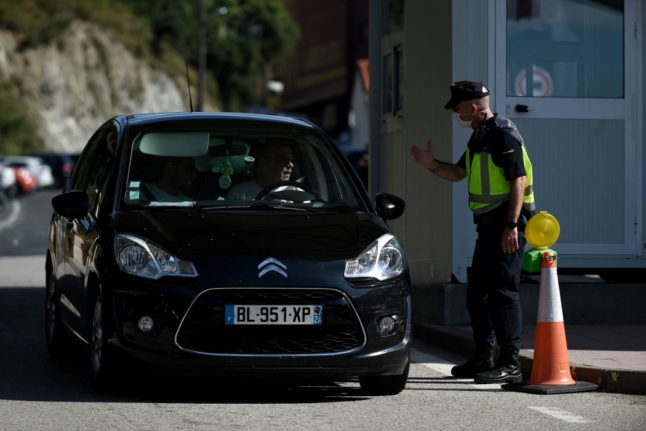After weeks of negotiations, Spain’s 17 regions agreed on March 10th to keep their regional borders closed to people based in Spain over the Semana Santa period, whilst allowing tourists to choose where they want to spend their holidays in Spain.
The country’s two archipelagos – the Canaries and the Balearics – were the only ones given some leeway initially, but since then the Atlantic islands have announced they’ll also close their borders (and even restrict non-essential travel between islands on level 3).
The Balearics’ government, concerned about the influx of tourists arriving currently, are considering a similar move.
So it’s safe to say that if you’re based in Spain, Easter breaks should be taken close by, in either your island, city, province or region, depending on where you are.
READ ALSO:
- What are the latest restrictions in each region of Spain?
- Can I travel to my second home in Spain?
- Where can I fly to in Europe from Spain right now?
That’s unless you want to run the risk of getting a stiff fine, which depending on the region can go from €100 to €600,000.
But there are of course exceptions if the reasons for travel this Semana Santa are not related to leisure or other non-essential reasons.
The justifiable reasons for inter-regional travel in Spain this Easter are:
Health reasons : going to a health centre or other medical establishments.
Work : professional, business, institutional or legal obligations related to one’s job.
Education: attending class at universities or other educational centres, including nursery schools.
Return home: according to the Spanish government, returning to your usual or family home is allowed, which doesn’t include second homes people have in the countryside in another region.
Care : assisting and caring for elderly people, minors, dependents, people with disabilities or other vulnerable people.
Banks and petrol stations: travelling across regional borders to go to your closest bank or insurance company is allowed, as is refuelling your vehicle in a neighbouring territory.
Legal matters: any required or urgent matter at a public institution, court or notary is a justified reason for travel across regions over Easter.
Renewing official documents: travelling across borders for permit and ID renewals as well as other official documentation is allowed, although in most cases foreigners in Spain have to deal with these official matters in their town or province. Resolving other administrative procedures that cannot be postponed is also a justified cause.
Exams : having to sit official exams or tests that cannot be postponed is a justified reason for travel this Easter.
Emergency : due to force majeure or a situation of need. This is of course subject to interpretation but the most important factor will be to be able to justify your emergency with documented evidence.
Other reasons: any other activity of a similar nature, which is duly accredited.
If you meet any of these criteria you will be able to travel between regions this Easter, although you will most likely have to fill in and print a “justificante de viaje”, a declaration form that explains the extenuating circumstances that justify your journey.
Not all of Spain’s autonomies have made this document available yet, so write the words in inverted commas above in a search engine, plus the name of your region, ahead of your journey to see if it has been made available by then. It it will also most likely be necessary to take along with you other documentation which support your reason for travelling.
Here are some of the regions that have made the certificate available.



 Please whitelist us to continue reading.
Please whitelist us to continue reading.
Member comments